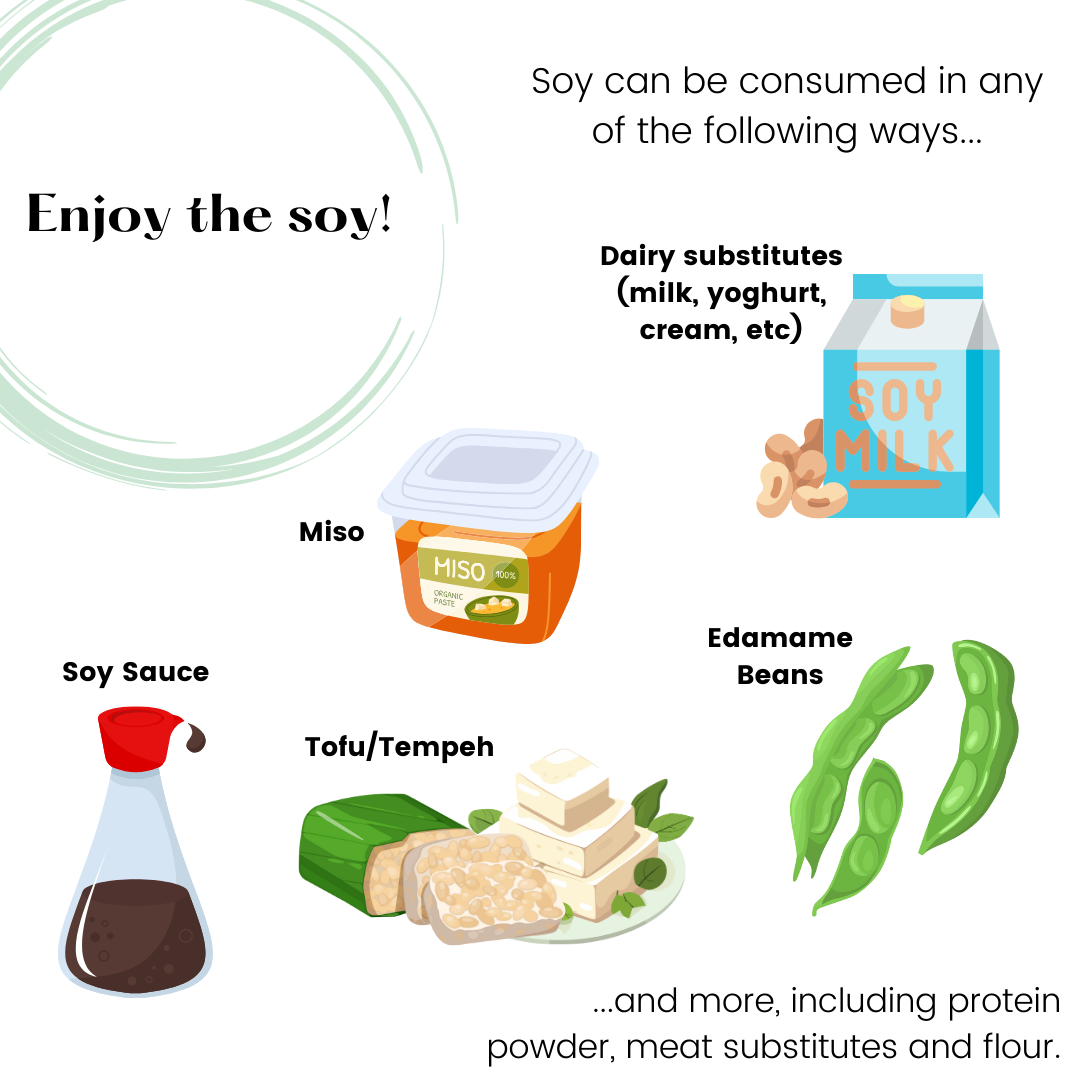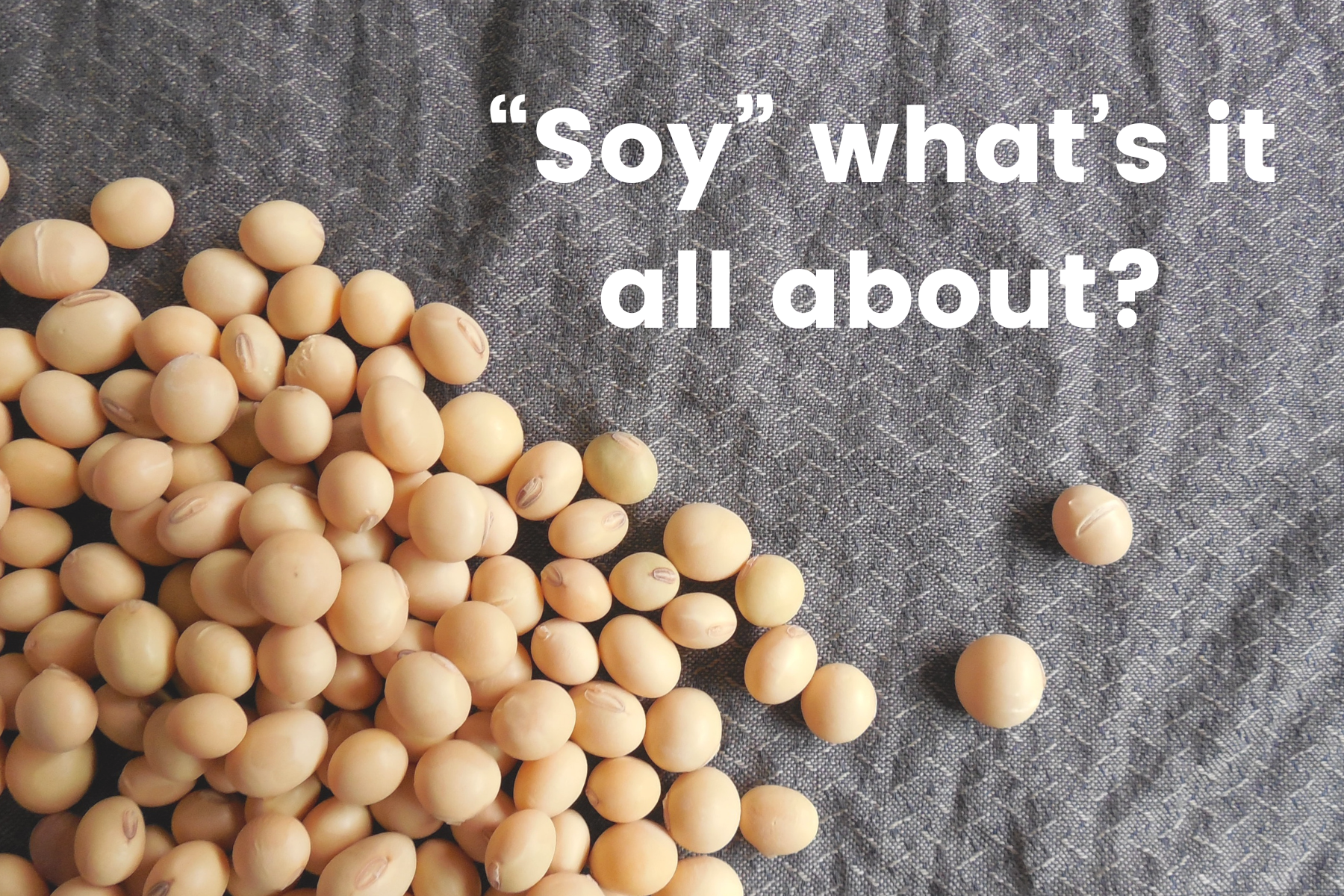For such a small crop, the humble soybean has garnered a large amount of controversy over the years. You’ll be happy to know that these negative comments, and many others, are consistently being proven wrong. In fact, soy is a nutritional powerhouse with a list of perks that might just surprise you!
But to start with, what is soy? Soy, or soy beans, are part of the legume family of vegetables and have been a staple item in Asian cuisines for years. It is a high quality protein, and is one of the few known plant foods to contain all nine essential amino acids, like those found in meat. Very popular in vegan and vegetarian diets, soy can be consumed in the forms of edamame beans, tofu, tempeh, soy sauce/tamari, dairy substitutes, protein powders, miso, even some meat substitutes.

Unfortunately, soy is one of the top allergens in Australia, and therefore should not be consumed in any form if you have an allergy. Soy allergies are most commonly seen in young children, however sensitisation to soy appears to increase rather than diminish with age. If you don’t have a soy allergy though, it is recommended that soy be consumed one to two times daily as part of a balanced diet to benefit overall health!
Here are our favourite benefits of soy!
-
Soy is a protein powerhouse! If you’re looking to fuel your muscles or just keep your energy levels high, soy could be the one for you! Due to its higher protein content and naturally low GI, it will also keep your blood sugars from spiking quickly and keep you fuller for longer.
-
Improvements to your heart health and quality are a major bonus to consuming soy! Studies have shown that soy consumption can help lower cholesterol, reducing the risk of cardiovascular diseases and cancer.
-
For women, studies have shown that in menopausal years, when oestrogen levels are low, the isoflavones found in soy, act as oestrogens relieving hot flushes, mood swings and reducing bone loss. It’s also been found that there is potential for the consumption of soy isoflavones in reducing breast cancer risk in pre- and post-menopausal women.
-
A major concern for men is the misconception that soy will ‘feminise’ them. It’s been shown that no significant effects of soy protein or isoflavone intake from soy products on total testosterone, free testosterone, estradiol, estrone, and sex hormone binding globulin in males. And while more research is needed, some analyses are showing a correlation between soy consumption and reduced risk of prostate cancer.
For those wanting to try soy-based products, or add more into their diets, check out these popular Nourish'd meals - Korean Sesame Tofu, Teriyaki Tofu and Vegetarian Singapore Noodles!



